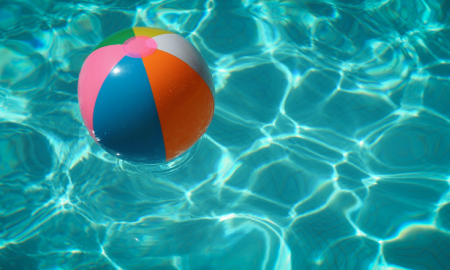
Avoiding the Risk of Vitamin D Deficiency This Winter

As fun and exciting building a snowman and ski trips are, the biggest downside of winters is shorter, bleak days that make it hard for most of us to get up in the morning while it’s pitch black outside. With the daylight getting delayed as we approach the coldest chapter of winter, the chances of you getting any sunlight before getting to work are close to none. But want happens when your body does not get its daily requirement of vitamin D for a long period of time? And is there a way to avoid vitamin D deficiency this winter?
Why is Vitamin D so important?

Vitamin D deficiency is mostly common in the northern part of the world which is relatively cold all year round
Vitamin D deficiencies can be quite problematic in winter when it’s hard to get any natural sunlight. A study shows that more than 20 per cent of people from the northern part of the world suffer from reduced levels of this essential vitamin due to lack of sunshine. This fat-soluble vitamin is often linked with the absorption of other key minerals in our body including calcium and phosphorus which prevents our bones from becoming weaker.
We often get a small portion of our daily requirement of vitamin D from foods such as cod liver oil and other types of fish but, our biggest source of this vitamin is ultraviolet radiation from the sun which our bodies absorb when our skin is exposed to the sunlight.
Only 5 Minutes in the Sun Could be Enough, Experts Say
This intense nutrient is essential for several cell and neurological functions and its deficiency can lead of weaker immune system, dementia and even cancer. The sunshine vitamin is also great in fending off depression and boosting your mood. But before you go off buying a bottle of vitamin D supplements from Amazon, its important that you consider a few essential facts about how much of it you need in a day, and easy ways that you can incorporate it into your diet.

Sunlight is the best source of vitamin D
If you live in a place that gets plenty of sunshine all year round, walking outside during the day for only 5 minutes can get you your daily vitamin D requirement. However, using a sunblock can often prevent effective absorption of this nutrient in our body and you may have to soak up the sun for a little longer to your daily dose of the sunshine vitamin.
How Much Vitamin D Do You Require Every day?
According to the new dietary reference intake from the Institute of Medicine, the amount of vitamin D you require may depend on your age and the amount of fat stored in your body. People with higher body fat percentage need a higher dose of the vitamin for effective absorption. According to the expert committee, 600 IU is considered the ideal amount of daily vitamin D intake for the age range 9-70, but it is not recommended to exceed the maximum safe level of 4,000 IU day.
Like most other things, too much vitamin D can become toxic for your body. If you like to bake away in the sun for hours every day, you want to be wary of the side effects of vitamin D overdose. Exceeding Institute of Medicine’s maximum safe level can lead of excess calcium absorption resulting in kidney stones, nausea and constipation.
It’s Important to Consult Your Doctor Before Reaching for Supplement Bottle

Always consult your doctor to get the correct supplement recommendation for you
If sunny days were all year round (we wish!), it would be easier to maintain recommended levels of vitamin D in your body – but if its not the case, then you can get this nutrient from several different sources including fortified cereals, red meats, orange juice, eggs, cheese and tofu. Experts say that everyone’s body is different and requires varying levels of vitamin D per day which is why it is hard to pick out a supplement that works for you.
If eating a balanced, well-rounded diet isn’t possible for you, then you must consult a nutritionist or your general practitioner to get proper supplement recommendation. Getting an annual physical test will also give you a better idea about which vitamins and minerals you are lacking in your diet. Most experts recommend that you take a supplement if you spend most of your time indoors and don’t eat a nutrient-rich diet.
More in Health & Fitness
-
`
4 Simple & Efficient Tips to Keep Your Skin Glowing This Winter
If you are someone who has a proper skincare routine, you must be bothered by dry skin in winter. Do you...
November 2, 2023 -
`
Summer Vibes: 5 Ideas for Unforgettable Hangouts with Friends
Summer is the season for outdoor fun and creating unforgettable memories with friends and loved ones. Whether you’re looking for a...
July 5, 2023 -
`
What Do These Skin Problems Tell about Your Health Condition?
Some medical conditions are tricky to spot simply because they are hidden and almost show no symptoms. However, they can manifest...
June 13, 2023 -
`
Wellness Tips to Help You Get Rid of Your Winter Blues
Winters can be a tough season not just for our body but also for our mental health. The sun rises later than usual...
May 7, 2023 -
`
Exploring the Latest Skin Care Trends: What’s Hot and What’s Not in 2023
The world of skin care is constantly evolving, with new ingredients and treatments popping up every year. With so many different...
April 24, 2023 -
`
Celine Dion Values Her Skin So Much That She Dropped $2 Million For This Device!
Utmost focus has been given to skincare, especially during this quarantine season, as more and more people opt to take care...
April 11, 2023 -
`
Samuel L. Jackson is a Vegan and He’s Not Ashamed to Admit it
Samuel L. Jackson, the iconic Hollywood actor, has been expressing his preference for vegan eating since August, 2018, due to some...
April 6, 2023 -
`
Terry Crews Uses THIS Technique to Maintain his Impressive Physique
Crews is a big boy. The Brooklyn Nine Nine actor maintains his weight at 245 lbs and being this bulked up...
April 5, 2023 -
`
The Most Famous Procedures in the Plastic Surgery Capital of the World
If you think that the United States is the place where the most number of cosmetic surgeries in the world happen,...
April 5, 2023















You must be logged in to post a comment Login